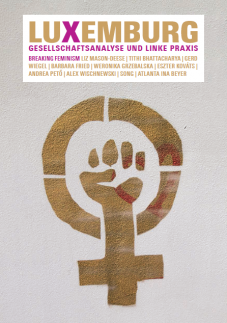Alex, you are actively involved with the platform »Keine Mehr« (Not One Less), whose aim is to bring the femicide debate to Germany. Why are you using the term femicide instead of talking about individual murders of women?
Femicide, or feminicide, is the killing of women and girls because of their gender. Every femicide involves the killing of a woman, but not every killing of a woman is a femicide. So it is not simply about differentiating between female and male victims.
Instead, the term is intended to make certain murders of women visible as a form of hate crime and to draw attention to the social context. On the one hand, this means understanding femicide as an extreme expression of unequal gender relations and a male desire to dominate. Numerous studies and reports have shown that the risk for women to be exposed to violence rises particularly when traditional gender arrangements are shifting – especially during and after a separation or divorce.
| mehr »






